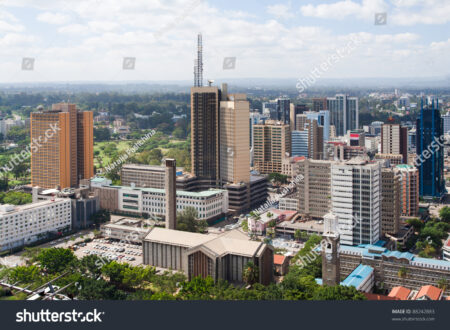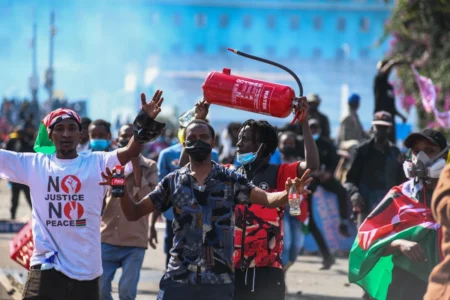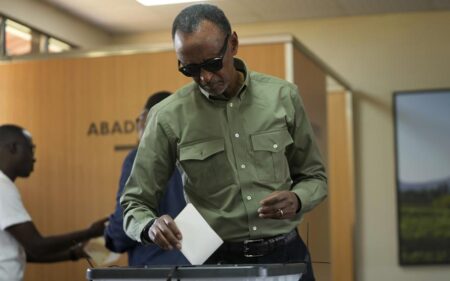- Between 2018 and 2020, Africa imported US$3.7 billion in wheat (32 per cent of the continent’s total wheat imports) from Russia and another US$1.4 billion from Ukraine
- The Russia-Ukraine tension has disrupted the steady supply of wheat, sunflower, and crude oil, causing prices to soar across the African region
- More than half of the wheat imported from Russia to Africa is consumed by Kenya, Tanzania, Egypt, Sudan, South Africa and Algeria
The Russia-Ukraine war has robbed approximately 46,000 lives and property worth $600 billion and displaced at least 17 million.
The war did not only impact the two neighbouring nations, but it spilt across the world, including East Africa, causing a serious disruption in food security, especially wheat in Africa. It began on February 24, 2022, by Russian forces moving forcefully into Ukraine “unprovoked”, which has caused ripple effects in African nations. Russia and Ukraine are not only good at warfare but are global breadbaskets and fossil fuel producers.
Multiple organisations, including the United Nations and United States Institute of Peace (USIP), argue that the Russian war in Ukraine has disrupted promising recovery from COVID-19 by rising food and fuel prices, disrupting the trade of goods and services.
Russia and Ukraine are global wheat producers feeding the northern sphere of Africa, West Africa (Nigeria), Ethiopia and Sudan in East Africa, where wheat imports stand at 80 per cent.
Numbers show that wheat consumption in Africa is projected to reach 76.5 million tonnes by 2025, of which 48.3 million or 63.4 per cent is projected to be imported by Africa.
READ: Nickel: Africa’s new opportunity as Russia-Ukraine crisis rages on
Wars waged upon nations impact the globe differently, and the Russia-Ukraine conflict has done a number on Africa which was ascending towards recovery post the pandemic. As Africa buys 30 per cent of overall cereal wheat and 95 per cent of wheat imports, price hiking concerns are inevitable.
More than half of the wheat imported from Russia is consumed by Kenya, Tanzania, Egypt, Sudan, South Africa and Algeria.
According to USIP, by the end of 2021, the region exceeded expectations of a 3.7 per cent GDP growth, recording a 4.5 per cent growth and showing signs of resuming the standard track.
The war impacted Africa, which is still recovering from the socio-economic shocks of COVID-19. In East Africa (EA), where crude oil and wheat imports are relied upon, prices of these items soared as the African Development Bank (AfDB) reported a 45 per cent increase in wheat prices across the continent. However, nations in EA, such as Tanzania, countered the tension spillovers to improve their economic systems by reassessing their food systems – internal production and rolling-out relief policies such as cutting taxes and fees to ease the cost of living.
READ: Africa snatches Europe from Russia
The sanctions pointed upon Russia aim to weaken and influence her ability to wage war and impact heavily on crucial sectors such as port operations in the Black Sea. The Sea is a gateway for Russian and Ukrainian agricultural supplies worldwide. According to France24, the Black Sea flows around 25 million tons of grains and other goods to international markets (including Africa).
The COVID-19 pandemic, which shaved most of the African region’s growth to the Russia-Ukraine war, provides the continent with an opportunity to learn and assess critical issues to reinforce safety measures and resilience for the continent’s welfare. It is time for East Africa to be self-sufficient, primarily by cutting down food imports significantly to avert food prices increase and insecurity.
East Africa must act
Acting fast is essential in today’s economic landscape. East Africa has everything in its arsenal to begin breathing life into its self-sufficiency—arable land, developed trade systems and markets.
In the spirit of disaster preparedness and resilience, the Russia-Ukraine war spillover is a key lesson on why the region’s economic systems must be robust to shield it from any shape or form of consequences. Analysing the broad spectrum of challenges faced by the region, foodstuff and crude oil importation were the top concerns raised. Hence, it is no doubt that Kenya, Tanzania and Uganda are completely capable of turning the wheat and oil import bill to export bills over time.
By following the same suit as Africa developing its oil economy – Nigeria- East Africa can also play down oil importation as it has successfully begun realising gigantic oil and gas projects.
Uganda produces many cash crops such as coffee, tea, sugar and edible oil. Kenya is widely known for its flagship cash crops, tea and coffee. On the other hand, Tanzania follows the same suit, including cashew nuts, sisal and tobacco, to mention a few. While maize is the common crop in all three countries, it is technically and agriculturally possible for the trio to ‘wage war’ against wheat-growers and grow it in their lands.
READ: African agriculture needs technological transformation
Despite poor irrigation systems, extreme weather conditions and soil quality becoming the case for wheat importation instead of farming it, countries such as Tanzania and Kenya are amping up their farming systems.
Tanzania’s irrigation area has risen to more than 727,000 hectares from around 625,000 in 2021. The nation has built silos in Burundi, Kenya and Congo, easing up supply and trade of crops across the regions. Kenya, East Africa’s leading economy and among Africa’s top four in fintech is leveraging modern financial technology to enhance commercial agriculture practices.
Utiliser application is a challenge, and the nation is striving to assist farmers in adapting to new tech by offering subsidies to ensure productivity is restored, while Uganda is striving to level up the playing field for farmers to access and adopt low-cost irrigation and climate-smart agriculture systems. On the same note, it also intensifies the functions of the entire agriculture value chain by empowering small and medium agri-businesses with capital.
Though not an overnight project, Africa can realise the sustainable and relevant adoption of low-cost irrigation and climate-smart agriculture systems, which will arguably transform food production systems and farmers’ economies.
The African Continental Free Trade Area (AfCFTA), which came to life in March 2018 and was enforced on January 1, 2021, is the largest global free trade area by countries participating and could transform the continent’s economic prospects. More importantly, it stands as a model of cross-border cooperation in an era of growing isolationism (European Union with Brexit).
“It could lift some 30 million Africans out of extreme poverty, increase income by $450 billion and more than double the size of the single African market to $6.7 trillion by the next decade,” UN Assistant Secretary-General Ahunna Eziakonwa argued during a discussion on Russia’s war in Ukraine and its effect on African economies.
The region must develop sustainable and relevant systems to curb potential challenges, whether economic recessions or natural disasters. The USIP argues that resilience can be achieved through initiatives that enable Africa to fully utilise its natural resource wealth and take advantage of planet-friendly financing mechanisms.
Further, East Africa must pick an essential lesson on the vitality of establishing substantial value-adding manufacturing industries, food security systems and export-economy for steady and effective growth over time.











